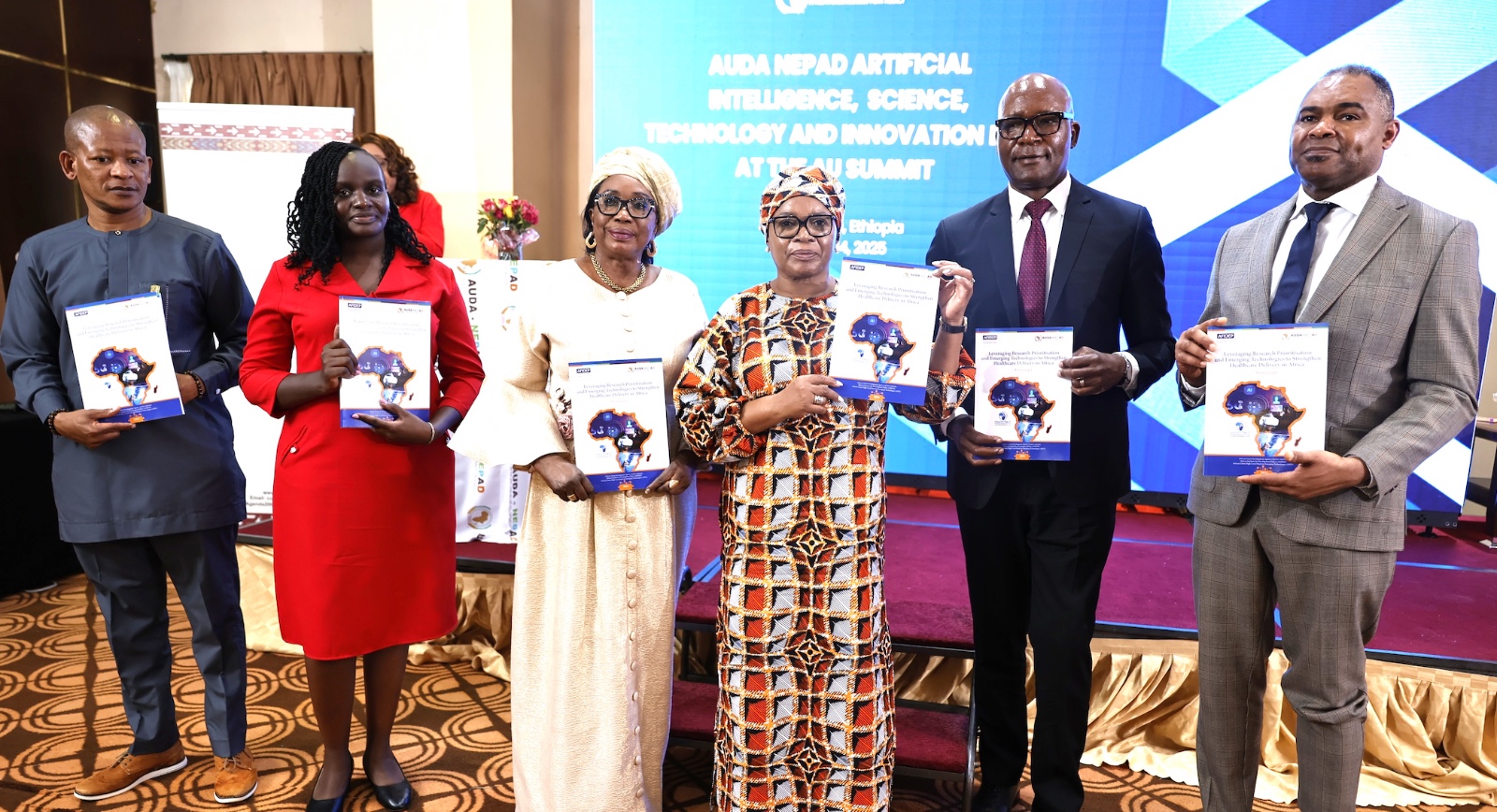 Malawi’s Foreign Affairs Minister Nancy Tembo, AFIDEB
Executive Director Dr Eliya Zulu ( Both Centre), and Chairperson of the African Union
High-Level Panel on Emerging Technologies (APET) Prof. Yaye Gassama alongside
other participants, during the launch of the report in Addis Ababa, Ethiopia. [PHOTO: HANDOUT]
Malawi’s Foreign Affairs Minister Nancy Tembo, AFIDEB
Executive Director Dr Eliya Zulu ( Both Centre), and Chairperson of the African Union
High-Level Panel on Emerging Technologies (APET) Prof. Yaye Gassama alongside
other participants, during the launch of the report in Addis Ababa, Ethiopia. [PHOTO: HANDOUT]A study done to strengthen healthcare delivery in Africa was
Friday launched on the sideline of the 38th African Union Summit in Addis
Ababa, Ethiopia.
Dubbed Leveraging Research Prioritisation and Emerging Technologies to Strengthen
Healthcare Delivery in Africa, the monograph explores the landscape of emerging
technologies for better healthcare delivery in Africa.
It was launched in a side event on harnessing research,
innovation, and emerging technologies for a resilient future.
The launch ceremony brought together leaders and experts
committed to transforming health systems in Africa through science, technology,
and innovation.
Malawi Minister of Foreign Affairs Nancy Tembo, who
represented President Lazarus Chakwera at the event, called on the urgency to
leverage emerging technologies like AI, drones, and blockchain to strengthen
health care.
“We must have the right investments, partnerships, and
policies, in order for the continent to advance socioeconomic development,
build resilient healthcare systems, and realize the clarion call of Africa We
Want,” Tembo said.
African Institute for Development Policy (AFIDEP) Executive
Director Dr Eliya Zulu reinforced this call, stressing that Africa’s growing
population of 1.5 billion presents both a challenge and an opportunity.
“To harness its demographic dividend, Africa must prioritize
science, technology, and innovation (STI), ensuring policies and decisions are
backed by evidence-based research,” she said.
AFIDEP is a pan-African organization working with governments in Africa to leverage evidence in decision-making.
The study was a collaboration between the African Institute
for Development Policy (AFIDEP), the African Union Development Agency (AUDA-NEPAD)
and the African High-Level Panel on Emerging Technologies (APET).
Also present at the launch were Prof. Yaye Gassama, APET
Chair; and Nardos Thomas Bekele, CEO of AUDA-NEPAD.
The report was developed through rigorous desk research, multiple consultations and validation sessions with Africa’s leading scientific
and technology experts.
Also involved were representatives of regional economic
communities, the African Union Commission, and relevant country-level
government officials.
The report is
enriched by country case studies that bring out rich lessons and insights for
direct application.
Drawing from the African Union’s guidance, the report covers
key technologies with the potential to radically change health outcomes in Africa
if well-developed and integrated in healthcare systems.
Areas covered are artificial intelligence, blockchain
technology, the Internet of Medical Things, drones, genomic medicine, and
genetically-based vector technologies.
The report pays special attention to technologies with the potential to reduce the persisting high numbers of deaths from Malaria, and
maternal and newborn health in Africa.
In addition, the report guides on the governance of bio-specimen and bio-banking in Africa, and, the implementation of the One Health approach on the continent.








![[PHOTOS] Gachagua warm reception in Nyandarua](/_next/image?url=https%3A%2F%2Fcdn.radioafrica.digital%2Fimage%2F2025%2F04%2Fc2a8c64d-5577-4768-a0ac-513c8876c288.jpeg&w=3840&q=100)


